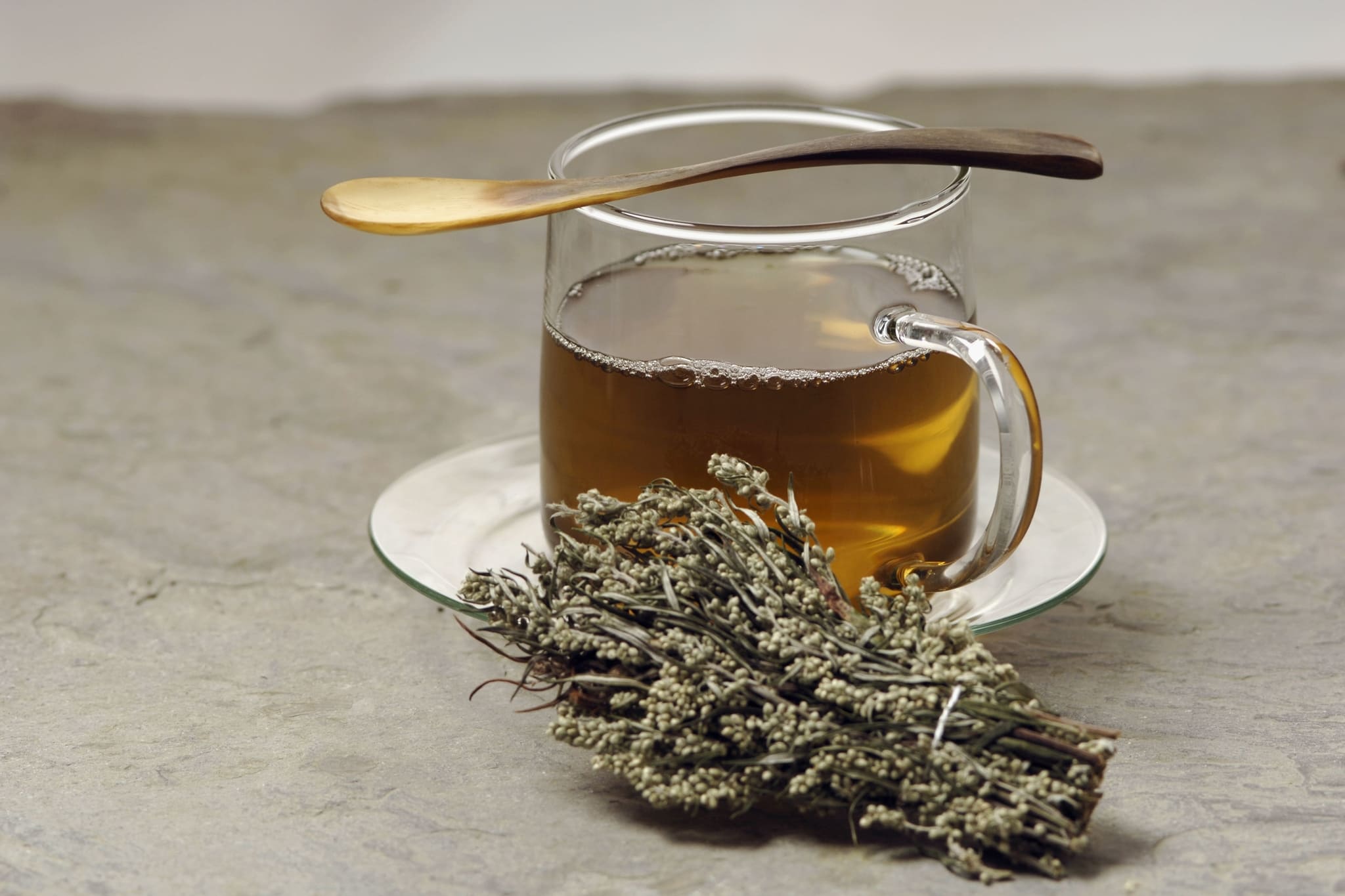From easing digestive issues to promoting relaxation, this versatile plant is gaining recognition for its natural healing properties. Whether you're seeking relief from menstrual cramps, improved sleep quality, or even enhanced spiritual practices, mugwort offers a holistic approach to well-being. Its unique combination of bioactive compounds makes it a standout remedy in the world of herbal medicine. Mugwort, scientifically known as *Artemisia vulgaris*, is native to Europe, Asia, and parts of North America. It belongs to the Asteraceae family, which also includes other medicinal plants like chamomile and wormwood. Historically, mugwort has been revered in various cultures for its ability to support physical, emotional, and even spiritual health. In Chinese medicine, it’s a key ingredient in moxibustion, a therapy that involves burning the herb to stimulate energy flow. Meanwhile, in Western herbal traditions, mugwort has been used as a digestive aid and sleep enhancer. Its rich history and modern resurgence make it a fascinating subject for anyone interested in natural health solutions. As we dive deeper into the mugwort health benefits, you'll discover how this herb can be incorporated into your daily routine. Whether you're using it as a tea, essential oil, or dried herb, mugwort offers a wide range of applications. Its anti-inflammatory, antimicrobial, and calming properties make it a go-to for those seeking natural remedies. In this article, we’ll explore the science-backed benefits of mugwort, its uses, and how it can enhance your overall wellness. Let’s embark on this journey to uncover the wonders of mugwort.
Table of Contents
- What Are the Top Health Benefits of Mugwort?
- How Can Mugwort Support Digestive Health?
- Mugwort and Women's Health: What You Need to Know
- Is Mugwort Good for Sleep and Relaxation?
- How to Use Mugwort for Spiritual and Emotional Well-Being
- What Are the Potential Side Effects of Mugwort?
- How to Choose and Store Mugwort for Optimal Benefits
- Frequently Asked Questions About Mugwort
What Are the Top Health Benefits of Mugwort?
Mugwort is often hailed as a "wonder herb" due to its wide array of health benefits. One of its standout qualities is its ability to reduce inflammation, making it a natural remedy for conditions like arthritis and muscle pain. The herb contains compounds such as flavonoids and terpenes, which possess potent anti-inflammatory and antioxidant properties. These compounds help neutralize free radicals in the body, reducing oxidative stress and promoting overall health. For those looking to manage chronic inflammation, incorporating mugwort into your routine could be a game-changer. Another key benefit of mugwort is its antimicrobial properties. Studies have shown that mugwort extracts can inhibit the growth of harmful bacteria and fungi, making it an excellent natural alternative for boosting immunity. Whether consumed as a tea or applied topically in the form of essential oil, mugwort can help combat infections and support your body’s natural defense mechanisms. Its use in traditional medicine to treat wounds and skin infections further underscores its effectiveness in this area. In addition to its anti-inflammatory and antimicrobial properties, mugwort is also known for its ability to improve circulation. By stimulating blood flow, mugwort can help alleviate symptoms of poor circulation, such as cold hands and feet. This benefit is particularly useful for individuals who experience discomfort during colder months or those who sit for extended periods. Improved circulation not only enhances physical comfort but also supports the delivery of oxygen and nutrients to vital organs, contributing to overall vitality.
How Does Mugwort Promote Relaxation?
Mugwort is often praised for its calming effects, making it a popular choice for those seeking relaxation and stress relief. The herb contains compounds that interact with the nervous system, promoting a sense of calm and reducing anxiety. Drinking mugwort tea before bed, for instance, can help quiet the mind and prepare the body for restful sleep. This makes it an excellent natural alternative to over-the-counter sleep aids, which often come with unwanted side effects.
Read also:Blake Lively Fat Unveiling The Truth Behind The Headlines
Can Mugwort Help with Menstrual Cramps?
For women experiencing painful menstrual cramps, mugwort offers a natural solution. Its antispasmodic properties help relax the uterine muscles, reducing the intensity of cramps. Additionally, mugwort’s ability to regulate hormones can contribute to a more balanced menstrual cycle. Many women report feeling significant relief after incorporating mugwort into their self-care routines.
How Can Mugwort Support Digestive Health?
Digestive health is a cornerstone of overall well-being, and mugwort has long been used to address various gastrointestinal issues. One of its primary benefits is its ability to alleviate bloating and gas. The herb stimulates the production of digestive enzymes, which helps break down food more efficiently and reduces discomfort. For individuals struggling with indigestion or irritable bowel syndrome (IBS), mugwort can provide much-needed relief. Another way mugwort supports digestive health is by acting as a natural appetite stimulant. For those who experience a loss of appetite due to stress or illness, mugwort can help reignite hunger and encourage healthy eating habits. Its bitter compounds stimulate the taste buds and signal the stomach to prepare for digestion, making it an excellent pre-meal tonic. Additionally, mugwort tea is often recommended for individuals recovering from illnesses to help restore their strength and vitality.
What Role Does Mugwort Play in Detoxification?
Mugwort is also known for its detoxifying properties. It supports liver function by promoting the elimination of toxins from the body. This is particularly beneficial for individuals who consume processed foods or live in urban environments with high pollution levels. By enhancing the body’s natural detoxification processes, mugwort helps maintain a healthy balance and reduces the risk of chronic diseases.
Mugwort and Women's Health: What You Need to Know
Mugwort has a special place in women’s health due to its ability to address a variety of concerns. From regulating menstrual cycles to easing the transition into menopause, this herb offers a holistic approach to female wellness. Its hormone-balancing properties make it a valuable ally for women of all ages. Whether you’re dealing with irregular periods or hot flashes, mugwort can provide natural support. One of the most well-known uses of mugwort in women’s health is its role in fertility support. In traditional Chinese medicine, mugwort is used in moxibustion to stimulate blood flow to the reproductive organs, enhancing fertility. This practice has gained attention in modern fertility treatments, with some studies suggesting that mugwort can improve uterine health and increase the chances of conception. For couples trying to conceive, mugwort may be worth exploring as a complementary therapy.
Is Mugwort Safe During Pregnancy?
While mugwort offers numerous benefits, it’s important to exercise caution during pregnancy. The herb’s ability to stimulate uterine contractions makes it unsuitable for use during this time. Pregnant women should consult their healthcare provider before using mugwort to ensure safety. However, postpartum, mugwort can be beneficial for promoting healing and restoring balance.
Is Mugwort Good for Sleep and Relaxation?
Sleep is essential for physical and mental health, and mugwort is renowned for its ability to promote restful sleep. The herb’s calming properties help reduce anxiety and quiet the mind, making it easier to fall asleep and stay asleep. Many people turn to mugwort tea or essential oil as a natural remedy for insomnia and other sleep disorders. Its gentle sedative effects are particularly appealing to those who prefer non-pharmaceutical solutions. In addition to improving sleep quality, mugwort also enhances relaxation during waking hours. Whether used in aromatherapy or as part of a meditation practice, mugwort helps create a serene environment. Its earthy aroma is grounding and soothing, making it an excellent choice for stress management. For individuals with busy lifestyles, incorporating mugwort into their daily routine can help maintain a sense of balance and calm.
Read also:Discovering Lily Cates Biography Career And Influence
What Are Some Easy Ways to Use Mugwort for Sleep?
There are several simple ways to incorporate mugwort into your bedtime routine. One popular method is to brew a cup of mugwort tea about 30 minutes before bed. Alternatively, adding a few drops of mugwort essential oil to a diffuser can create a relaxing atmosphere in your bedroom. Some people also place dried mugwort under their pillow to encourage vivid dreams and deeper sleep.
How to Use Mugwort for Spiritual and Emotional Well-Being
Beyond its physical health benefits, mugwort has long been associated with spiritual and emotional healing. In many cultures, it’s considered a sacred herb used in rituals and ceremonies to cleanse negative energy and enhance intuition. Burning mugwort as incense or smudging it around your home can create a protective and uplifting environment. Its connection to the moon and feminine energy makes it a popular choice for spiritual practices. Mugwort is also known for its ability to enhance dreams and promote lucid dreaming. Many people use it to explore their subconscious mind and gain insights into their emotional well-being. Placing dried mugwort under your pillow or drinking mugwort tea before bed can help you tap into this aspect of the herb’s magic. Whether you’re new to dream work or an experienced practitioner, mugwort can deepen your connection to your inner self.
Can Mugwort Be Used in Meditation?
Yes, mugwort can be a powerful tool in meditation practices. Its calming aroma and grounding energy make it an excellent addition to any meditation space. Burning mugwort incense or using mugwort-infused candles can help you focus and deepen your practice. Additionally, carrying a small sachet of dried mugwort can serve as a reminder to stay present and centered throughout the day.
What Are the Potential Side Effects of Mugwort?
While mugwort health benefits are numerous, it’s important to be aware of potential side effects. Some individuals may experience allergic reactions, particularly if they are sensitive to plants in the Asteraceae family. Symptoms can include skin irritation, respiratory issues, or gastrointestinal discomfort. If you notice any adverse reactions after using mugwort, discontinue use and consult a healthcare professional. Another consideration is mugwort’s interaction with certain medications. For example, its ability to stimulate uterine contractions makes it unsuitable for use during pregnancy. Additionally, individuals taking blood-thinning medications should exercise caution, as mugwort may enhance the effects of these drugs. Always consult your doctor before incorporating mugwort into your routine, especially if you have underlying health conditions or are taking prescription medications.
How Can You Minimize the Risk of Side Effects?
To minimize the risk of side effects, start with small amounts of mugwort and gradually increase as needed. Always source high-quality, organic mugwort to avoid exposure to harmful pesticides or contaminants. If you’re new to using mugwort, consider consulting an herbalist or healthcare provider to ensure safe and effective use.
How to Choose and Store Mugwort for Optimal Benefits
Choosing the right mugwort is essential for maximizing its health benefits. When purchasing dried mugwort, look for vibrant green leaves with a strong, earthy aroma. Avoid products that appear brown or have a musty smell, as these may indicate poor quality or improper storage. For essential oils, opt for brands that use steam distillation and clearly list their sourcing practices. Proper storage is equally important to preserve mugwort’s potency. Store dried mugwort in an airtight container away from direct sunlight and moisture. This will help maintain its freshness and prevent mold growth. If you’re using mugwort essential oil, keep it in a cool, dark place to extend its shelf life. By taking these steps, you can ensure that your mugwort remains effective for as long as possible.
Frequently Asked Questions About Mugwort
What Are the Main Mugwort Health Benefits?
Mugwort offers a wide range of health benefits, including anti-inflammatory, antimicrobial, and calming properties. It’s particularly effective for digestive health, menstrual support, and relaxation. Its versatility makes it a valuable addition to any wellness routine.
Can Mugwort Be Used Topically?
Yes, mugwort can be used topically in the form of essential oil, poultices, or infused balms. It’s effective for soothing skin irritations, reducing inflammation, and promoting wound healing. Always perform a patch test

